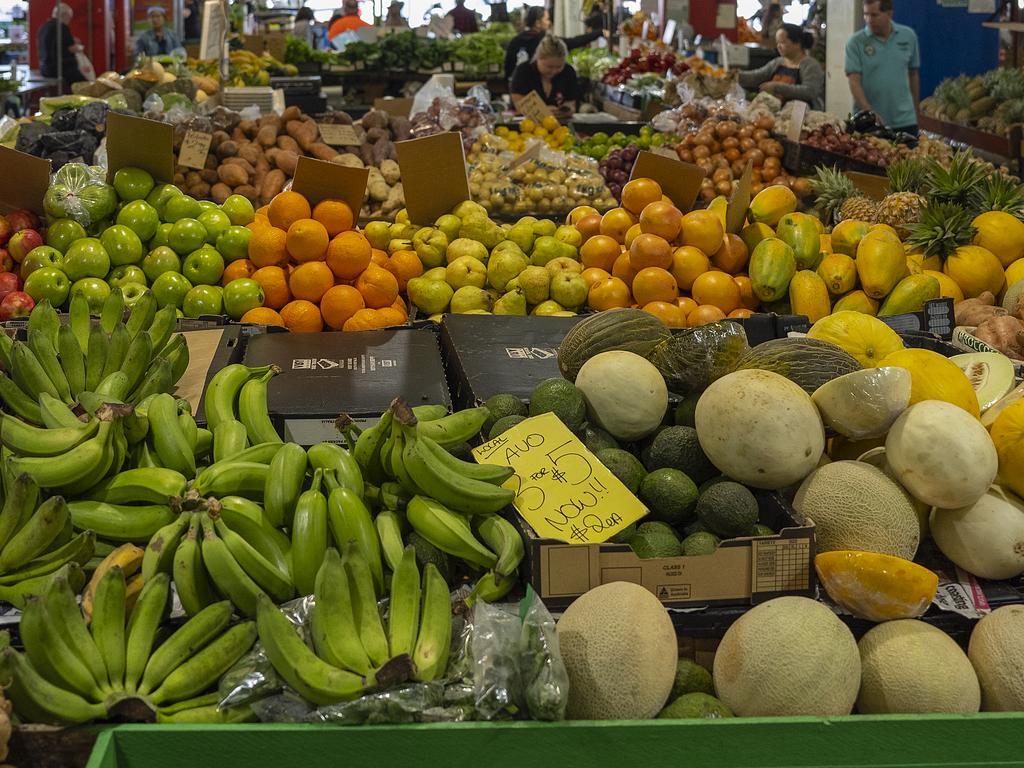An Aussie farmer has accused supermarkets of “manipulating” prices, claiming he’d be driving a Ferrari if he got paid what retailers are charging.
An Aussie farmer has accused supermarket chains of “manipulating” prices, claiming he’d be driving a Ferrari if he got paid what retailers are charging for fruit and vegetables.
Cherry farmer Guy Gaeta, from Orange, NSW, said cherries are sold for around $5 per kilogram, but once they hit the shelves, the price rises to around $15.
“If farmers were getting $10 for a lettuce, we’d be driving Ferraris,” Mr Gaeta told 2GB’s Ben Fordham.
“It is rotten for the farmers, but even worse for the consumers.”
Well-documented lettuce supply issues are due to improve in July as supermarkets continue working with growers to recover from the impact of heavy rain in growing regions.
Heavy rain has also disrupted supply of broccoli and broccolini, which is expected to start improving from July.
But Mr Gaeta said farmers were getting “ripped off” by supermarkets.
“Farmers are not getting nowhere near that price, they’re getting manipulated … it’s pretty ruthless.
“Nobody’s doing anything about it … with the cost of living and inflation, when is it going to end?
“We wear most of the cost. Yes they’ve got costs too, but we (the farmers) are not putting 80 per cent on top of the price we agree on.
“We’re talking about essential food, we all know we all need fruit and vegetables, it’s very important to our wellbeing. There’s nothing worse than when a farmer gets $5 a kilo for cherries and they see it in the supermarkets for $15, $16 – I don’t think it’s fair.”

Mr Gatea said he is now refusing to supply large supermarkets chains, including Woolworths and Coles, but says others in his position don’t have that luxury.
“If we don’t say no to them, we probably have to throw the produce away,” Mr Gaeta said.
“Unless we say enough is enough the consumer is just going to pay more and more and when you pay more, you don’t buy as much and with that you’ve got to drop your price.”
Toll of prolonged supply issues
Prolonged supply issues have pushed prices to extremes that small produce business owners have never experienced before.
Dominic Marino, owner of Melbourne produce business Marino Bros, told Nine the strain being felt by his company was even worse than what it endured during the pandemic.
“The sad thing now is we are experiencing more pain in the past six months than the past two years during Covid-19,” he said.
“Being in this game for 30 years, I have never experienced the pain of trying to buy vegetables like this.”
Fellow Melbourne produce business The Flying Zucchinis shared a similar experience, with produce boxes costing 25 per cent more now than this time last year.
A box of broccoli that would have cost $16, now costs the business $60.
“My business partner and I spend twice as long planning our boxes each week, just to have it fall apart at 4am when we reach the markets and realise that prices have hiked again in the six hours that we were asleep,” business partner Caity Meyer told the publication.
“This isn’t a sustainable position for a small business to sit in. We predict that prices will level out again soon, but we’ll be taking a good hard look at our operations if they don’t.”
No reprieve for canned food
The disaster has also extended to the supply of canned food, with SPC boss Robert Giles pleading with the federal government for financial support.
Supply costs – separate to energy prices, which the company has locked in until next year – had placed immense pressure on the company, Mr Giles told the Australian Financial Review.
Box supplier Visy had increased prices by 14 per cent which came after Mr Giles’ warning in March that staples including SPC Ardmona canned tomatoes, baked beans, spaghetti and Goulburn Valley fruit would rise in price by 10 to 20 per cent.
“We just finished a significant price increase for our tomato season next year based on fertiliser, diesel and labour,” he told the publication.
“The flow-on effects are being felt everywhere. We’ll have to pass on packaging increases, next season we will have to pass on fruit increases and a year later we will probably have to pass on energy price increases.”
Extracted from news.com.au


